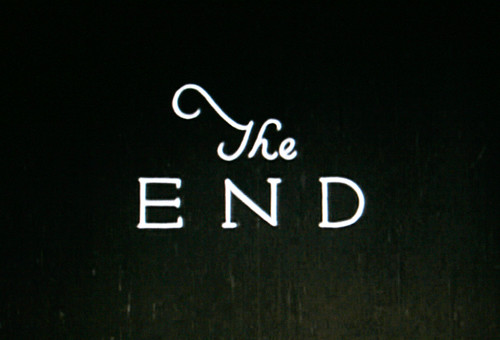 I would like to answer Stacy's questions, which bring up excellent points.
I would like to answer Stacy's questions, which bring up excellent points.The first topic of conversation is the obvious comparison between The Da Vinci Code and Angels and Demons. The beginnings are exactly the same. Like EXACTLY. As Stacy pointed out, the Prologue is of a man getting killed when being asked about information. Then you read about Langdon in a nice room, sleeping and getting woken up at a disgustingly early time, with an urgent plea to come see something that he needs to see. Then he sees a picture of a person who was brutally murdered with cryptic word(s) nearby (or in this case, on top of the body) and the Langdon gets taken to the scene of the crime. Then the girl comes in, who is related to the victim. And the guy that shows Langdon around is always a little suspicious. And an ancient secret brotherhood is involved.
O__o
Come on, D-Brown, are you really that creatively-challenged? You couldn't have varied it a little? Sure there are variations, like Vittoria loves her father, whereas Sophie had been distant with her grandfather for 10 years, but the similar and basic plot is there.
Next, the comparison between Fache and Kohler. Fache is known as "The Bull" and Kohler as "The King," and their personalities have some similarities, but I think they will play different rolls. Kohler obviously doesn't suspect Langdon of committing the murder, so Kohler will not be chasing Langdon to England and France trying to capture him. Also, Kohler does not seem to have a part in the Illuminati. Fache was a devout Catholic and for a while it seemed like he was involved in the murder of Sauniere and the three other senechaux (I mean, who didn't think he was the Teacher for a while?). But Kohler is obviously not a part of the Illuminati. Though Kohler would be interested in a group that was "dedicated to the quest for scientific truth" (40), Kohler would not support a group that would kill Leonardo (name cannot be a coincidence) to take his antimatter and then use it to blow up the Vatican (I bet anyone 10 dollars that thats what they want to do). Kohler and Leonardo had "a mutual respect for each other," and was just as disgusted with the murder as Langdon was. He also was extremely surprised when finding out about the antimatter. Or Kohler is a really great actor. Either way.
Also, physically Fache and Kohler are very different. While they both create fear in their employees, Fache is a strong man, one who uses his strong appearance to gain reverence from others. Kohler is a weak old man that has to take medication every day, uses a wheelchair, and keeps coughing. I mean, his eyes are described as being lifeless! As Danny says, "two gray stones" (23). Very interesting, this comparison.
There are a few other things I would like to take note of. First of all, at the end of chapter 19, antimatter is written as "anti-matter." But for the rest of the chapters it was written as "antimatter." Is the first one a mistake? Or was it supposed to be an emphasis on the prefix "anti"? Hmmmmmmm...
Oh! And I thought it was interesting how in Angels and Demons, Langdon is having a difficult time believing that the Illuminati still existed, even though he had written a book on the group and knew much about them. Well, I mean that's why he didn't really believe it because Hassassian committed the act in a brutal way, unlike the way of the ancient Illuminati. But groups change, people change, and maybe the Illuminati underwent a horrible change as well. I think this might have been why Langdon started focusing on the Priory after this incident, because it was an old, ancient group that still existed. He probably figured if the Illuminati still existed, it would be worthwhile to study other groups.
Then again, Langdon is a fictional character, and cannot make these choices...
It's interesting that The Da Vinci Code was more religious-based and Angels and Demons is more scientific based. It makes me wonder what the last book will be based on... A combination of both? Or something completely random and out of the ordinary?
And I want an epic battle between Vittoria and Sophie in the last book over Langdon's honor! PLEASEEEEEEEE!
Hmmmm there was something else... I remember! This book was obviously written after The Da Vinci Code because otherwise Langdon would have made many, many, MANY comparisons between Sauniere's death and Leonardo's in The Da Vinci Code. Prequels usually fail in this aspect.
And that's it! Enjoy! :)
Brianna

